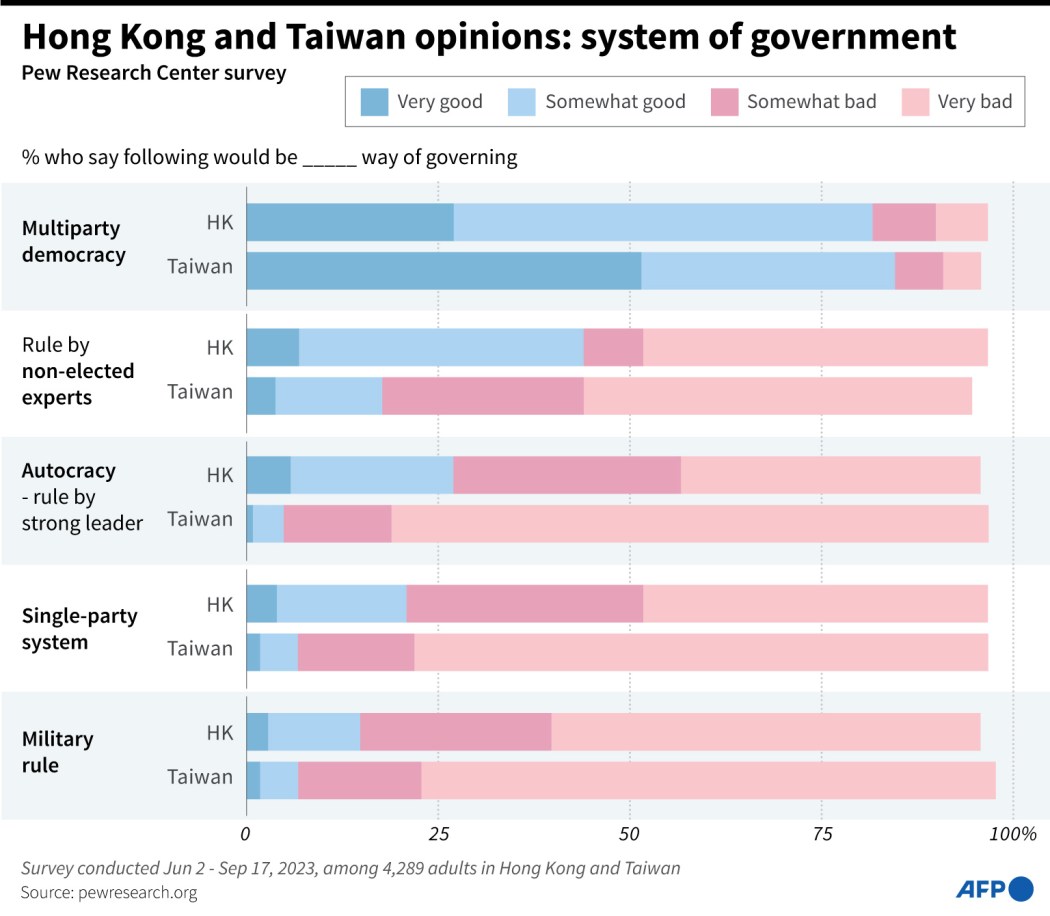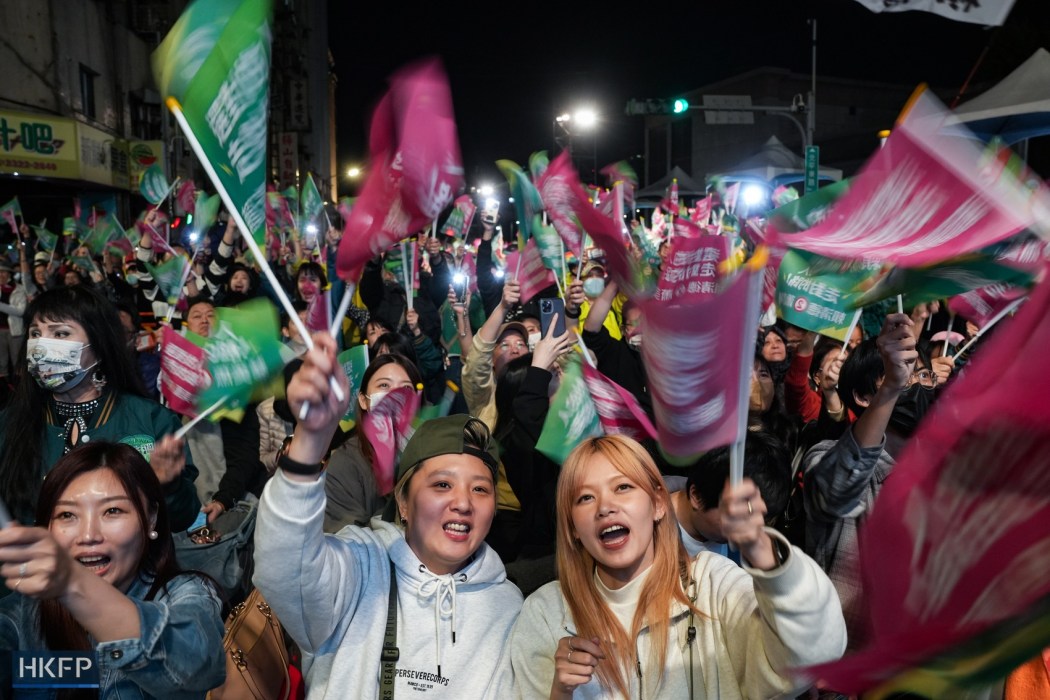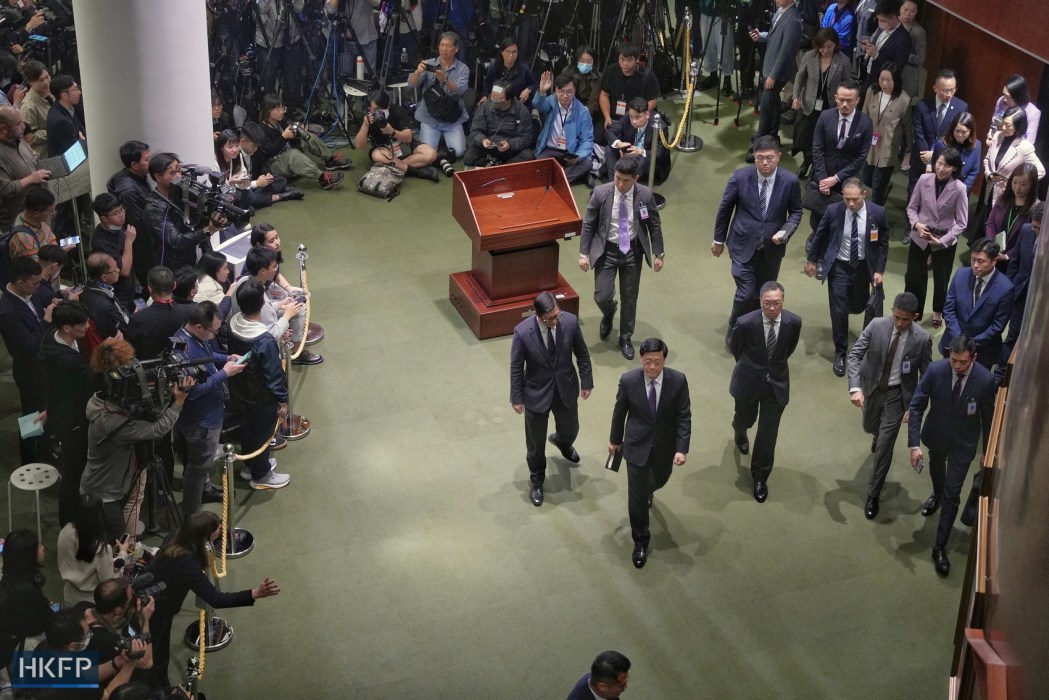82 per cent of Hong Kong adults say that a multi-party democracy would be a good way of governing the city, a Pew survey of five East Asian territories and countries has found.

“More than eight-in-ten adults in Hong Kong and Taiwan say democracy is a good way to govern… Yet some people in both places are open to alternative systems of government,” the US-based Pew Research Centre said in a report last week.

The research institute surveyed 2,012 residents aged 18 and over in the summer last year as part of a broader study of public opinion in East Asian societies including Hong Kong, Taiwan, Japan, South Korea, and Vietnam.
84 per cent of Taiwanese adults also said multi-party democracy – which refers to a system in which two or more political parties can take place in elections – would be a good way of governing.
Only 15 per cent of Hongkongers found multi-party democracy “a bad way of governing,” while 11 per cent of Taiwanese felt the same, the report said.
But the city’s residents were more likely than Taiwanese people to support non-democratic systems, such as a one-party system, technocracy, autocracy and military rule, according to the survey results.

43 per cent of Hongkongers said a technocracy – which refers to a society led by an elite of technical experts – would be a good way or governing, compared with 18 per cent of Taiwanese who said the same.
27 per cent of Hongkongers considered “rule by a strong leader” to be good, while 21 per cent supported a “single-party system.” Comparatively, fewer than one-in-ten Taiwanese found the two options to be palatable.
The report added that military rule was unpopular in both places, with 15 per cent of Hongkongers and 7 per cent of Taiwanese supporting it respectively.
Attachment to China
An analysis by the research centre found that people with a higher level of education were more likely to support a multi-party democratic system, both in Hong Kong and in Taiwan. On the other hand, those with a lower-level of educational attainment in both places were more likely to support non-democratic systems.
But an attachment to China also played a role in Hong Kong, the report said, with those having an emotional attachment to China being more likely to have a positive view of non-democratic systems.

“For example, 32% of those with an emotional attachment to China say that rule by a strong leader would be a good way of governing Hong Kong, compared with 18% of those who do not feel particularly attached to China,” wrote Janell Fetterolf and Sneha Gubbala, both researchers at the Pew Research Centre.
Taiwanese views of different forms of government did not differ by their emotional attachment to China, the researchers added.
While the results suggested strong support for a democratic system in Hong Kong, the research centre noted that its survey was fielded before the passage of the new, domestic security law, known locally as Article 23.

Separate to the 2020 Beijing-enacted security law, the homegrown Safeguarding National Security Ordinance targets treason, insurrection, sabotage, external interference, sedition, theft of state secrets and espionage. It allows for pre-charge detention of to up to 16 days, and suspects’ access to lawyers may be restricted, with penalties involving up to life in prison. Article 23 was shelved in 2003 amid mass protests, remaining taboo for years. But, on March 23, 2024, it was enacted having been fast-tracked and unanimously approved at the city’s opposition-free legislature.
The law has been criticised by rights NGOs, Western states and the UN as vague, broad and “regressive.” Authorities, however, cited perceived foreign interference and a constitutional duty to “close loopholes” after the 2019 protests and unrest.
Support HKFP | Policies & Ethics | Error/typo? | Contact Us | Newsletter | Transparency & Annual Report | Apps
Help safeguard press freedom & keep HKFP free for all readers by supporting our team

LATEST FROM HKFP
HKFP has an impartial stance, transparent funding, and balanced coverage guided by an Ethics Code and Corrections Policy.
Support press freedom & help us surpass 1,000 monthly Patrons: 100% independent, governed by an ethics code & not-for-profit.










